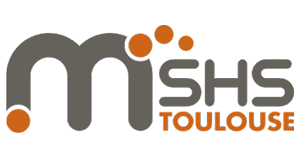Members
Laura Arciniegas, Isabelle Bazet, Katia Bechikh, Thao Bui-Nguyen, Rémi Cayatte, Danielle Cornot, Éléonore Coeurdevey, Anne Dupuy, Leslie Fonquerne, Elisabeth Fournales, Christian Laborde, Cyrille Laporte, Philippe Marrast, Anja Martin-Scholz, Anne Mayère, Stéphanie Mulot, Kremlasen Naidoo, Diana Oliveira, Paul-Emmanuel Pichon, Mélanie Porte, Jean-Pierre Poulain, Amandine Rochedy, Jean-Philippe Sajus, Christophe Serra-Mallol, Laurence Tibère, Frédéric Zancanaro
Associate members: Ari Ragavan Neetiahnanthan, Bruno Claverie, Sandrine Fournié, Elise Mognard, Mahmoud Qodsya
Partners: Olivier Lepiller, Tristan Fournier, Anne-Claire Yemsi-Paillissé
Managers
Anne Mayère, Jean-Pierre Poulain
anne.mayere@iut-tlse3.fr, poulain@univ-tlse2.fr
Keywords
Sociology of food ; Anthropology of food ; Dietary practices ; Dietary patterns, Social dimensions of obesity ; Body image ; Nutritional and dietary education ; Food risk ; Health policy ; Communicational approach to health work and the health system ; Hospital information system, Extended patient’s record, Patient’s work ; EHealth, associated legal and contentious vulnerabilities ; Health and mediation ; Patients’ rights
Examples of research projects
« Malaysian observatory of food » Project: studying the impact of evolving food practices in Malaysia on the population’s health.
Period: 2012-2015
Contacts: Jean-Pierre Poulain and Laurence Tibère
« OSICAT » Project: restructurations of health work and questions of authority with telemonitoring for patients suffering from chronic pathologies.
Funding IFERISS, CHU of Toulouse
Period 2014-2017
Contacts Isabelle Bazet, Marie Bénéjean, Elisabeth Fournalès, Anne Mayère
« OBVIA » Project: studying the perception, and the social and dietary consequences, of bariatric surgery on an elderly population subject to severe and morbid obesity.
Funding CNRS, ISTHIA-UT2J, Conseil Régional Midi-Pyrénées, Centre Intégré Obésité Toulouse
Period 2013-2015
Contacts Christophe Serra Mallol and Olivier Lepiller
« BALI » Project: measuring the components and the consequences of diet on the well-being of certain populations.
Funding Pôle de compétitivité Vitagora « Goût-Nutrition-Santé » – Fonds Unique Interministériel (FUI)
Period 2011-2014
Contact Anne Dupuy
Presentation of our research
Our work is focused on the fields of health and food that meet where strong societal issues and inter-disciplinary scientific links converge.
In the field of food, they articulate themselves principally around three themes
to “sociologize” the questions asked by the medical community (obesity, cancer, aging, epigenetics…) and by the contemporary medicalization of food/diet, by dedicating ourselves to analyzing the social determinants at work, and by analyzing the controversies emerging from the evolution and the advancements of scientific knowledge in a sociology of science perspective.
to develop a sociology of health and of relations between health and food (questions on the role of the construction and transmission of social norms that frame practices, on the role of individuals and the link with the identity construction process, on conventions and negotiations between actors…), as well as different populations’ representations of these, especially in multiethnic societies (Malaysia, Reunion island, French Polynesia).
to analyze the perception of food risk and the design of collective risk management schemes, as well as the conditions for the development of policies regarding food (PNNS: national nutritional program; indicators and signs of quality…) and to measure their impact.
In the field of health, it is organized around three dimensions
to analyze the transformations of health systems, and more particularly what they say about information production and communication activities, their equipment…
to examine combined evolutions towards ambulatory care, telemedicine, the accountability of patients, the therapeutic education of patients and the reference to autonomy, in order to characterize health work transformations especially in terms of mediation and coordination, and the new associated issues in terms of patients’ rights and medical responsibility
to characterize the transformations of medical and care giving work as equipped with computerized applications, and as framed and drawn by management schemes that examine writings, the writing, and the spoken at work
The questions in the areas of health and food share theoretical concepts, cross-cutting queries, as well as questions on the fields. Work within this axis must help deepen these shared theoretical and empirical objects.
Our research is organized around the following themes
Agenda-setting
Today, food and health are equally put on the agenda and constructed as social issues. It is a matter of bringing forward autonomy, accountability and capacities for action as close as possible to practice, while prescribing methods and equipment as close as possible to ways of being and doing. Our project aims to explore the tensions and initiative taken that can result from them.
We examine how these agenda-settings work on the representations of bodily norms at the same time as the bodies themselves, the practice, but also the organizing processes, the interplay between participants, and the equipment of norms and practices.
Technicization processes
We wish to test the hypothesis whereby forms of plural technicization present procedural and logical patterns that partly converge. These common and combined questions should also make it possible to specify the theoretical and empirical issues specific to each of these fields.
It is about
- taking seriously the agency of techniques, objects and technical systems that populate and participate in shaping the studied fields;
- questioning the important contemporary evolutions that, by equipping the organizing processes, by the way they do and represent themselves, systemize practices (public appropriation of culinary techniques), or seek to make efficiency and safety of care compatible (technical computerization systems of patients’ records);
- Concerning ourselves with the increasing fusion between subjects, bodies and techniques, which we observe with the proliferation of prostheses and the transformations of the connected individual.
Methodological innovations for multidisciplinary (and international) research
The studies being led (measures of well-being and their application, nutrigenetics and epigenetics, health…) imply plural multidisciplinary collaborations (anthropologists, economists, behavioral psychologists, neuro-psychologists, epidemiologists, nutritionists, computer scientists, researchers in engineering sciences). The contributions of social sciences are both in the process of developing a corpus and in the discussion of results.
The methodological innovations are also due to the international trait of some of these programs. In this way, methodological progress and pooling, as well as comparative works will materialize and enable the study of forms of living together in multicultural societies.
update january 2016






